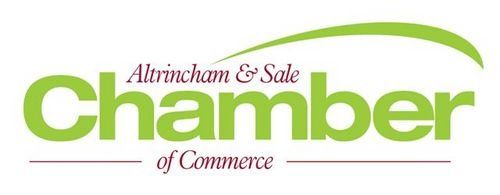Online mediation alternatives
Mark Whittell • 17 June 2020
How playing cards online made me reconsider remote mediation
The point of sharing this story was to say how it struck me that playing cards online was like mediating online. If I am honest, it was great to see my friends online and to have some banter - we even managed to play a full game, but it was not quite the same. We did not have a break while someone dealt with the social niceties, as the application had a new set of cards in front of us within a second of finishing the previous round. It was an enjoyable experience but not quite the same. For example, it was much more difficult to see who was bluffing and these were friends who I have known for the majority of my life.
We all went away saying how much we had enjoyed ourselves and that we would carry on until the restrictions were lifted and this is what I’d like to persuade you for online mediation.
In a similar manner, mediation depends on the personal and communication skills of the mediator to establish a rapport and to develop the necessary trust with all of the participants. This enables the mediator to have credibility with the parties so that they will accept the challenges to the strength of their case and listen to the advantages of achieving a settlement.
Equally important to the mediator are the clues given by the participants as they discuss their case. It is sometimes the non-verbal cues, such as their facial expressions and body language or even the tone of their voice, that are most important to the mediator.
Just as online diminishing whist does not truly replicate the interpersonal skilled card game, so too online mediation is not the perfect substitute for a mediation around a table, but while the restrictions remain in place it is a way for litigants to resolve their cases.
We have to accept online mediation has its deficiencies but as well as enabling a mediation to take place with the current Government Regulations it also has some advantages. For example:
- It avoids the time and cost of travel.
- It eases the strain on people’s diaries and enables them to participate.
- It provides greater flexibility in how the mediation is structured.
- It does not leave people stuck in their break-out rooms for hours of the day
- People do not have to devote the whole of their day to the mediation as they can be working out of their own office when not participating.
- The parties still have the opportunity to discuss matters amongst themselves while the mediator is online with the other side
- The opportunity still exists for reality testing or for you to pose questions to the other side through the mediator, which you hope will make them reflect on the merits of their case.
- It still allows for the personal touch and mediators can see some of the body language on screen
The online tools such as Zoom do make this a very credible alternative and I invite you to try it. I am sure you will have much more success than I did at cards!!.

We like to think we will always be around. Unfortunately, our inability to confront our own mortality can have a disastrous effect on those closest to us and our businesses. All businesses need to deal with succession, but farming families are particularly vulnerable to the effects of failing to deal with succession. Why is succession planning so important within farming? One of the main reasons is that children are often involved in working on the family farm and there is this unwritten understanding that one day all of this will be yours. Farming families are also notorious for not having partnership agreements in place, which again can leave the business open to potential disputes over the ownership of the business and its assets. Issues within farming One of the most common disputes that arise in farming families from a lack of succession planning is a proprietary estoppel claim – briefly put this is where: A representation, promise, assurance or other encouragement by the defendant giving rise to an expectation by the claimant that he/she would have a certain proprietary interest. There is reliance by the claimant upon that expectation. Finally, the claimant suffers a detriment in consequence of his/her reasonable reliance on the promise. When can mediation help? During the planning discussions Getting to the actual discussion about succession is often the first hurdle. Farmers are often so busy running the farm that they don’t have time to think about succession planning and for many people having this sort of discussion doesn’t come easy. Family members don’t want to rock the boat – children don’t want to disappoint their parents by admitting they don’t really fancy running the farm. Parents may feel that they are forcing their children into running the farm, but then equally children can be insensitive with their new ideas for the farm, which can often lead to disputes with their elders. Having an open and honest conversation as early as possible – and before a problem arises, is the best course of action. The children may not want to carry on the farm, but by knowing this the parents can plan for their retirement and have something to aim for. Sometimes these discussions will get out of hand. Heated debate may take place and people may get offended and upset. Mediation enables an independent third party to come in and speak with all of those involved. The mediator can: Explore the goals of each family member and what they want to achieve Facilitate conversations between family members so that they understand what others feel and want Enable the family to come up with a way forward together Where no discussions have taken place and litigation ensues Proprietary estoppel cases are fuelled with emotion and often to lead to lengthy, bitter and very expensive litigation. Whist there are practical steps you can take to avoid claims such as avoiding making promises and succession planning, this isn’t always the case. If faced with a claim for proprietary estoppel the parties should consider the use of mediation over litigation as the advantages of using mediation include: Confidentiality – farming communities are small, and these cases are ripe for local gossip and media attention. Cost – a mediation costs between £1500 - £3000 per party vs legal costs of around £100,000 if it went to trial. Speed – the mediation can be arranged within a few weeks and dealt with in one day - in comparison to the time it will take to bring the matter to trial (at least a year) and a possible 3 to 5 day hearing. The parties decide on the solution rather than a Judge making a decision (which often suits neither party).

Despite popular opinion they are not something which should be only considered in later life, or at the onset of an illness but right now to ensure your wishes will be respected should you lose mental capacity, be that temporarily or indefinitely. Lasting Powers enable you, the donor, to appoint someone you know and trust to act in your best interest, when you are unable to do so. Their purpose is to promote your independence. Most attorneys will be appointed family members – children and grandchildren. Families do not always agree on things, and this will be no exception when it comes to making decisions as an appointed attorney. What can cause issues? • Underlying family tensions o The initial appointment of the attorney(s) may have exacerbated tensions between family members, with some questioning why they were only appointed as replacement attorney for example. • Lack of consensus of agreement between attorneys • Lack of agreement between attorney(s) and other family members • Lack of agreement/consultation between attorneys, family members and medical professionals • Lack of inclusion/consultation with the donor What kind of disputes can arise? • Accommodation decisions • Financial management • Property management • Care/treatment decisions • Gifts Family disputes can increase the risk to the donor as the disputes may mean that not all decisions are being made in the donor’s best interests, which can have a negative effect on the donor’s care, health and wellbeing. The Court of Protection and the Mental Capacity Act Code of Practice encourage those involved in an attorney dispute to attempt mediation. The mediator must have regard to the Mental Capacity Act 2005 (“MCA”), and one of the areas where mediation helps rebalance the power between donor and attorney(s) is that any settlement must comply with Section 4 of the MCA: “a decision made for a person who lacks capacity must be made in the best interests of that person” Mediation is ideal when people are not communicating well or not understanding each other‘s point of view. It can improve relationships and stop future disputes, so it is a good option for attorneys as it is in their interest to maintain good relationships in the future. Mediation • ensures issues are addressed in the best interests of the donor • involves the donor and takes into account their wishes and feelings • supports the donor in making decisions • enables parties to communicate effectively and understand each other’s points of view • likely cheaper than going to the Court of Protection

The latest Arcadis Global Construction Disputes Report 2020 has revealed that the average time taken to resolve construction disputes in the UK has fallen by 23% to just 9.8 months (previously 12.8 months). This reduction in time doesn’t correspond to a reduction in the average value of disputes, which have remained constant. So why is the average length of dispute in the UK the lowest in the world? The report looked at how the UK deals with its construction disputes with the top 3 most common methods pf resolving a construction dispute being: 1. Adjudication 2. Party to Party negotiation 3. Arbitration So why doesn’t mediation make the top 3? Mediation has lost its place in the top 3, having been overtaken by Arbitration – most likely due to the introduction of new low-cost schemes, such as the Chartered Institute of Arbitrators’ Business Arbitration Scheme. Efforts have been made to encourage the early use of dispute resolution in the construction sector – such as the Construction Industry Council’s Model Mediation Agreement and Procedure, but this doesn’t seem to have made much of an impact. Mediation offers a lower cost and a quicker option to those involved in the construction industry, so perhaps in time and with ongoing education as to the benefits more will come to use it. Whatever the method – alternative dispute resolution is here to stay, and the construction industry success certainly serves as a shining example.







